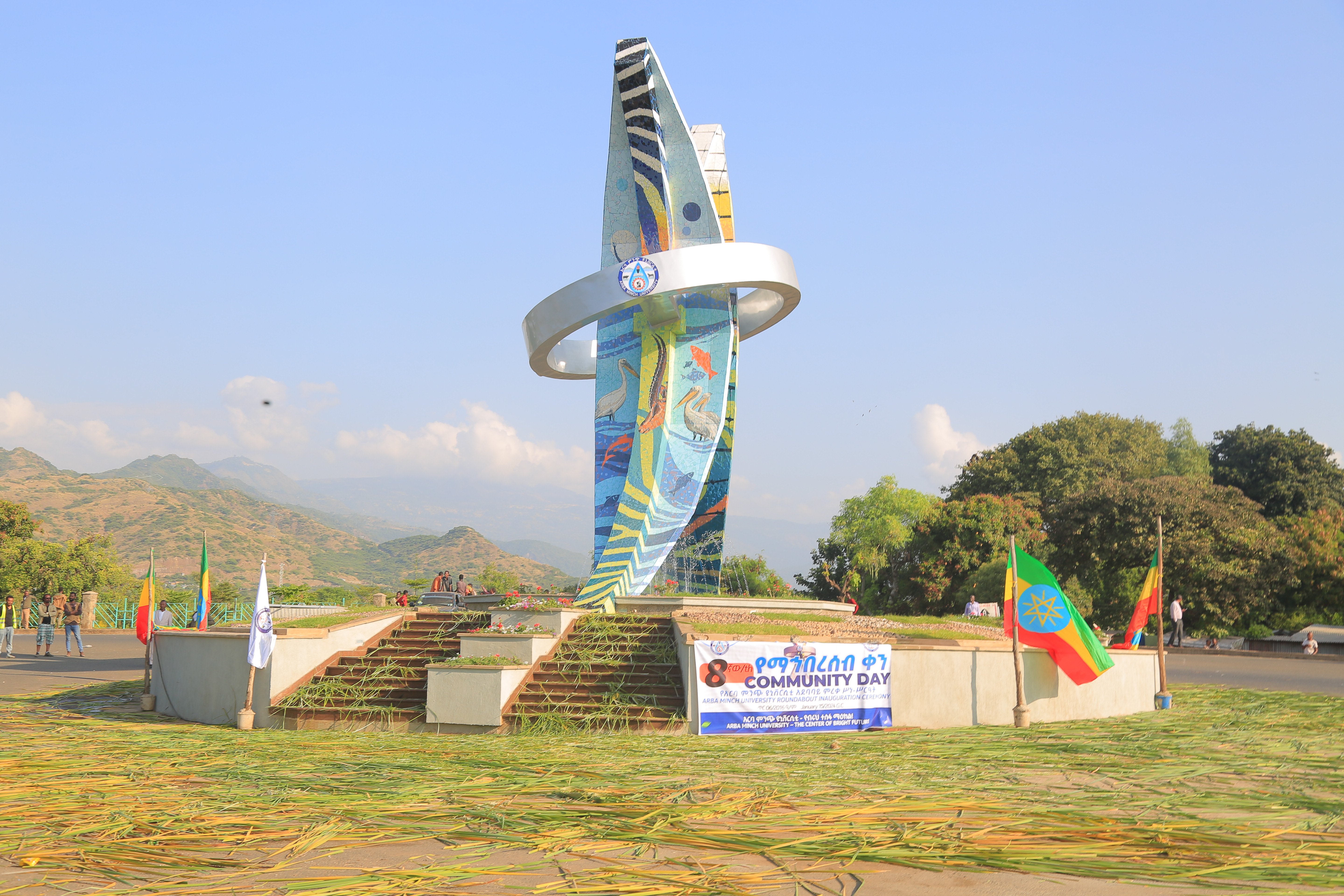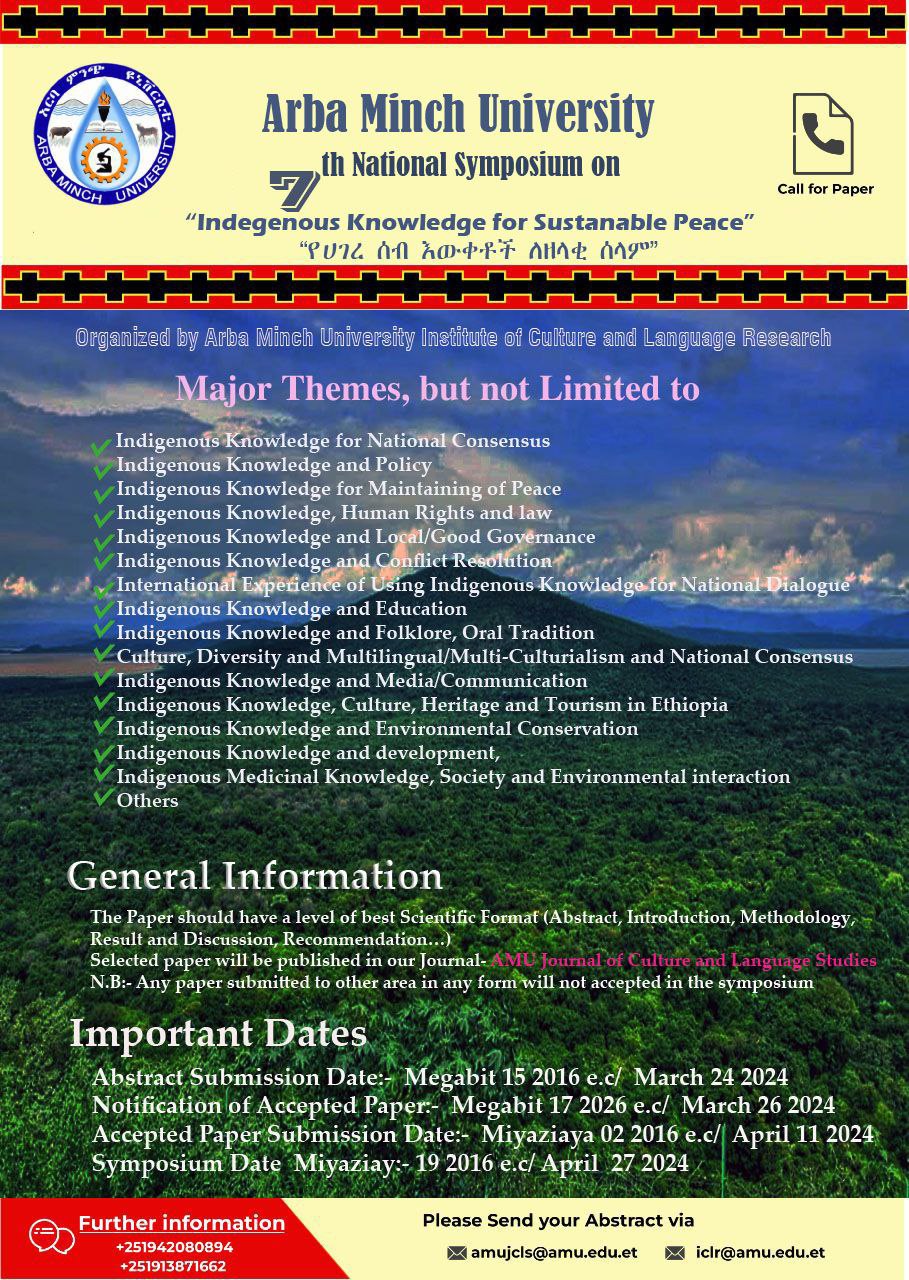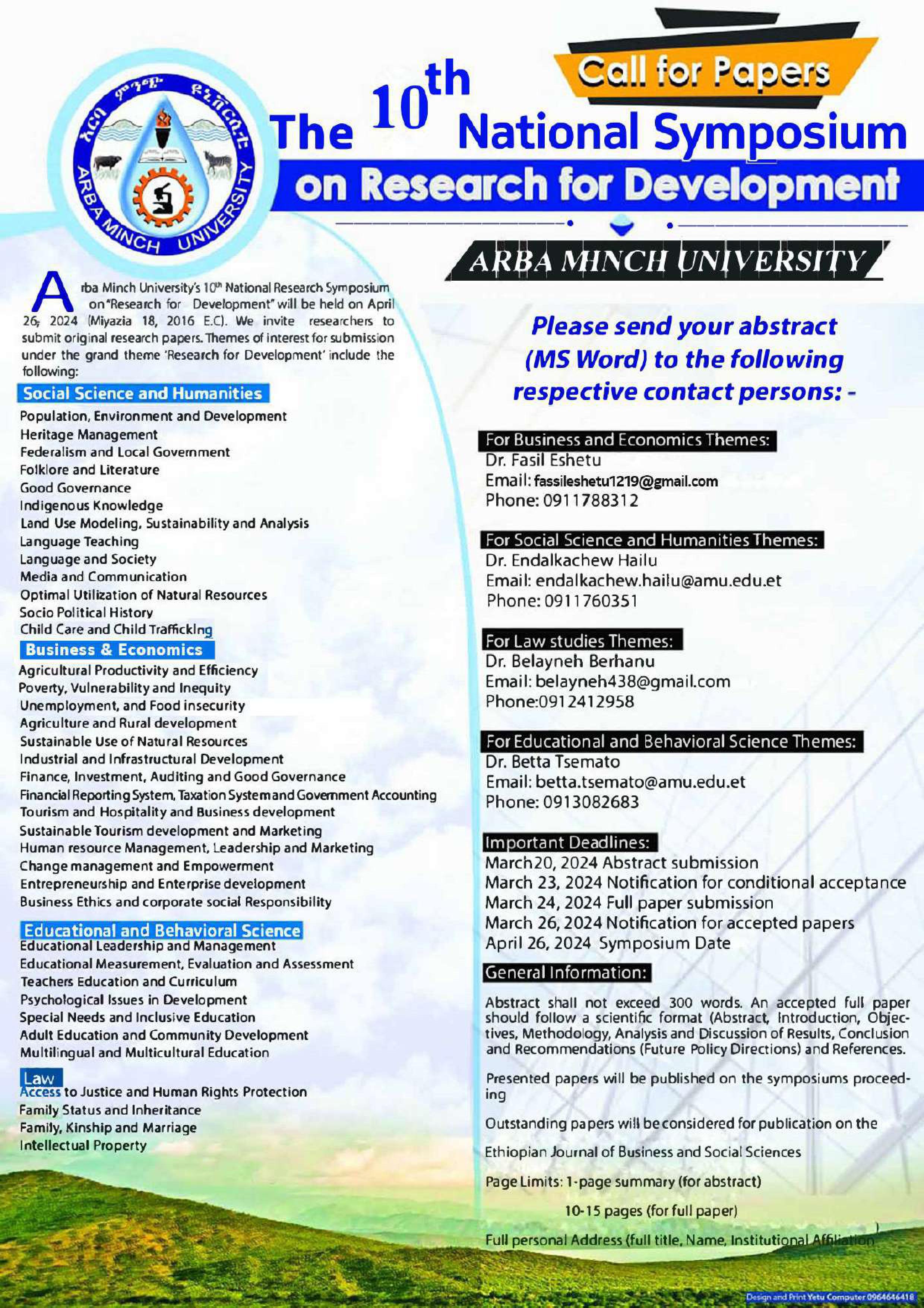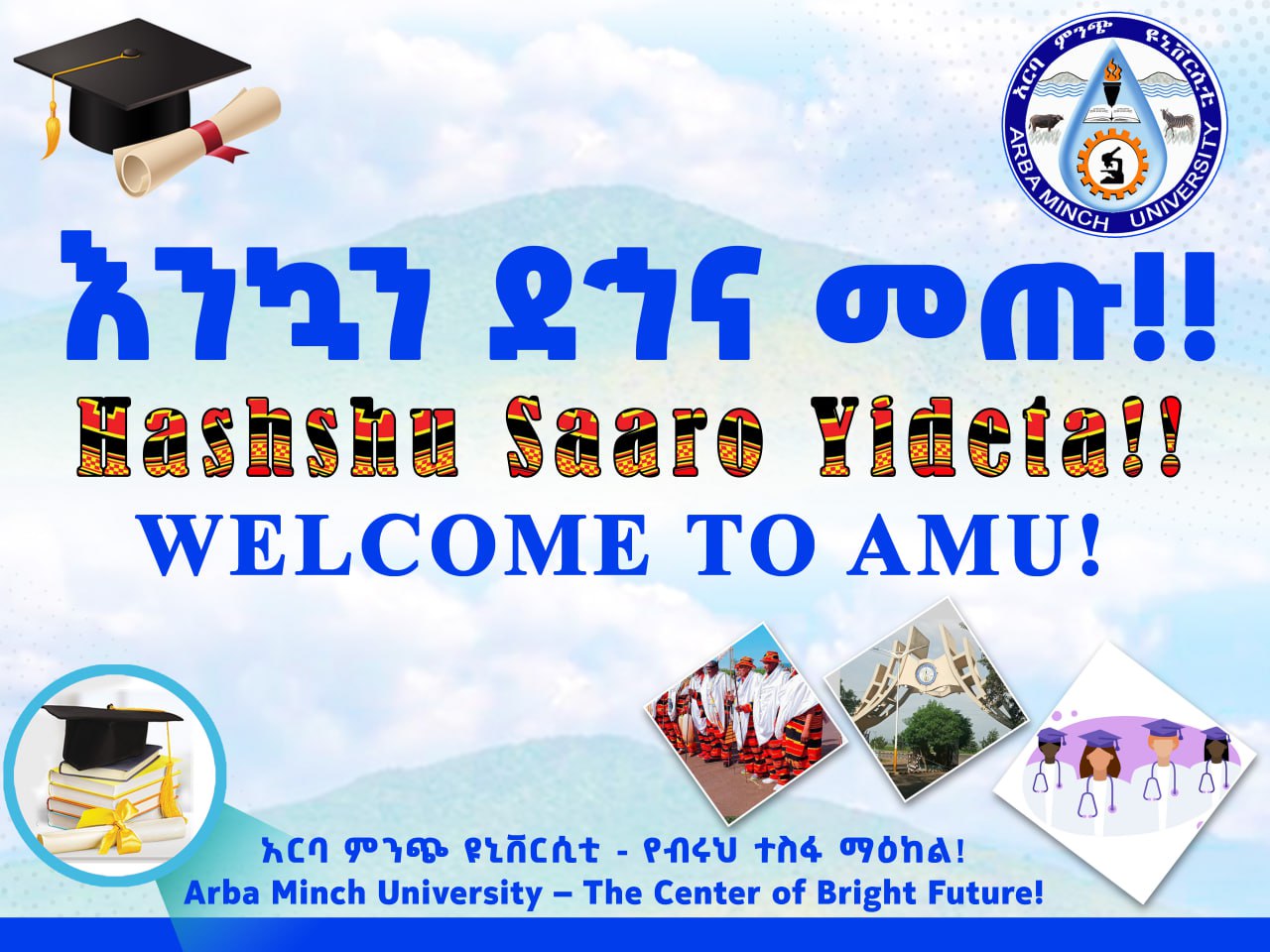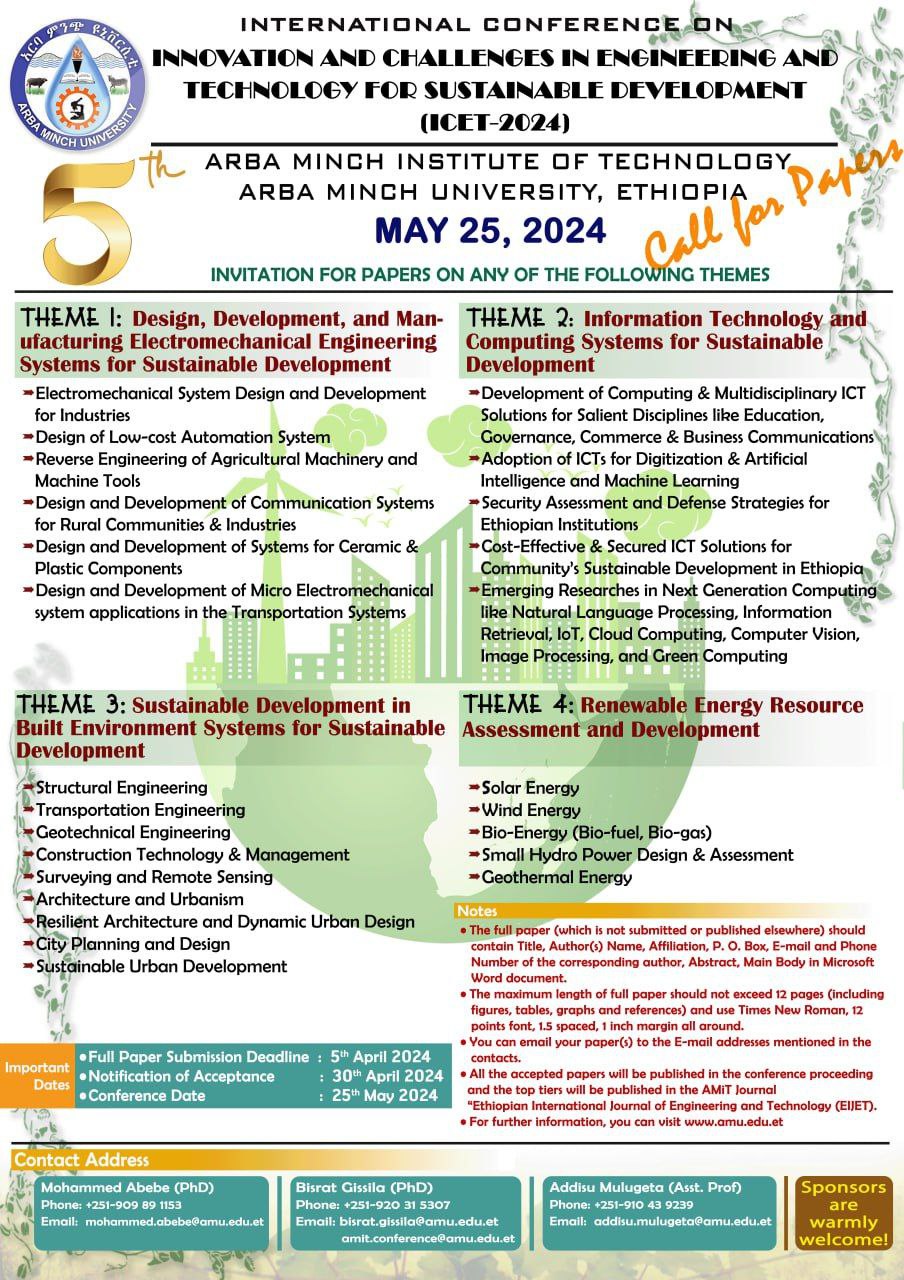AMU in association with VLIROUS, Belgium, has launched a new 4-year Enset Team Project on April 4, 2016, in a kickoff conference held at New Hall, Main Campus. Flemish promoters, Prof. Karen Vancampenhout, Prof. Seppe Deckers, AMU officials, stakeholders and others graced the function. Click here to see the Pictures.
Prof. Karen Vancampenhout, giving an overview on Enset, said, ‘‘Around 15 million people in South-Eastern Ethiopia rely on it for sustenance. It’s drought-resistant, fibrous and nutritious; covering highland slopes; it can also be used as buffer against soil erosion.’’
The project is mandated to probe relationship between ecological and management factors. It will improve nutritional and market value through post-harvest techniques. Building capacity through joint research, adopting systemic approach and involving stakeholders are other goals.
Project co-promoter, Prof. Seppe Deckers said, ‘‘Enset’s existence dates back to 2500 years during Axumite Empire. It’s a tree against hunger that photosynthesizes 364 days in a year and captures high amount of carbohydrate; it can be a tool against soil erosion in highlands.’’
The project to be implemented in Gamo Highlands is hosting two PhD scholars from AMU, Mr Sabura Shara and Mr Addisu Fikadu. It will study agro-ecological conditions and productivity aspect thus improving Enset production by combating diseases that is manageable by farmers.
Mr Sabura Shara said, ‘‘Bacterial wilt, Xanthomonas Campestris pv. Musacerarum destroys Enset in its entirety that jeopardizes livelihood. New hygiene protocol and resistant varieties are the two ways to combat bacterial wilt, he suggests.
Mr Addisu Fikadu, informed, ‘‘Lactic acid, entero bacteriaceae, spore and yeast are main fermentation agents. Terming traditional methods as labor-intensive and tardy, he recommends modern techniques to expedite fermentation process with hygiene.
Experts from a cluster of universities under Catholic University, Belgium along with a team from AMU will get involved. The project will incur Euro 300,000 for over 4 years.
Prof. Karen Vencamponite of KU Lueven, Belgium, is Flemish promoter while former AMU president, and Deputy Director-General of Ethiopian Biodiversity Institute, Dr Feleke Woldeyes, an Ethiopian promoter.
Of project’s three phases: first consisting of two years will see problem identification, while during second and third phases of a year each formulated interventions will be administered by looking into areas like agro-ecological conditions, pre-harvest and post-harvest etc.
The program was anchored by Corporate Communication Directorate Director, Mr Fissiha Bekele while it was organized by Research Directorate.
(By Corporate Communication Directorate: Philips Joseph)
